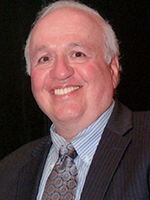Peter Polverini
Jonathan Taft Distinguished University Professor of Dentistry
Dean Emeritus, University of Michigan Dental School
Professor of Pathology, University of Michigan Medical School
Learning Objectives
BIO
Dr. Polverini is the Jonathan Taft Distinguished University Professor of Dentistry and dean emeritus, University of Michigan Dental School and Professor of Pathology, University of Michigan Medical School. Dr. Polverini has a distinguished scientific career in the field of vascular and cancer biology. More recently, he has focused his attention on the educational and workforce implications of new models of collaborative care and the emerging personalized healthcare environment.
Dr. Polverini is a recipient of the Distinguished Scientist Award in Oral Medicine and Pathology from the International Association for Dental Research, the Birnberg Research Award from Columbia University College of Dental Medicine, the Distinguished Alumnus Award from Marquette University School of Dentistry, and the William J Gies Award for Vision from the American Dental Education Association Gies Foundation.
Dr. Polverini is a Fellow of the American Association for the Advancement of Sciences and the American Association for Dental Research and past President of the American Association for Dental Research. Dr. Polverini is an elected member of the National Academy of Medicine.

